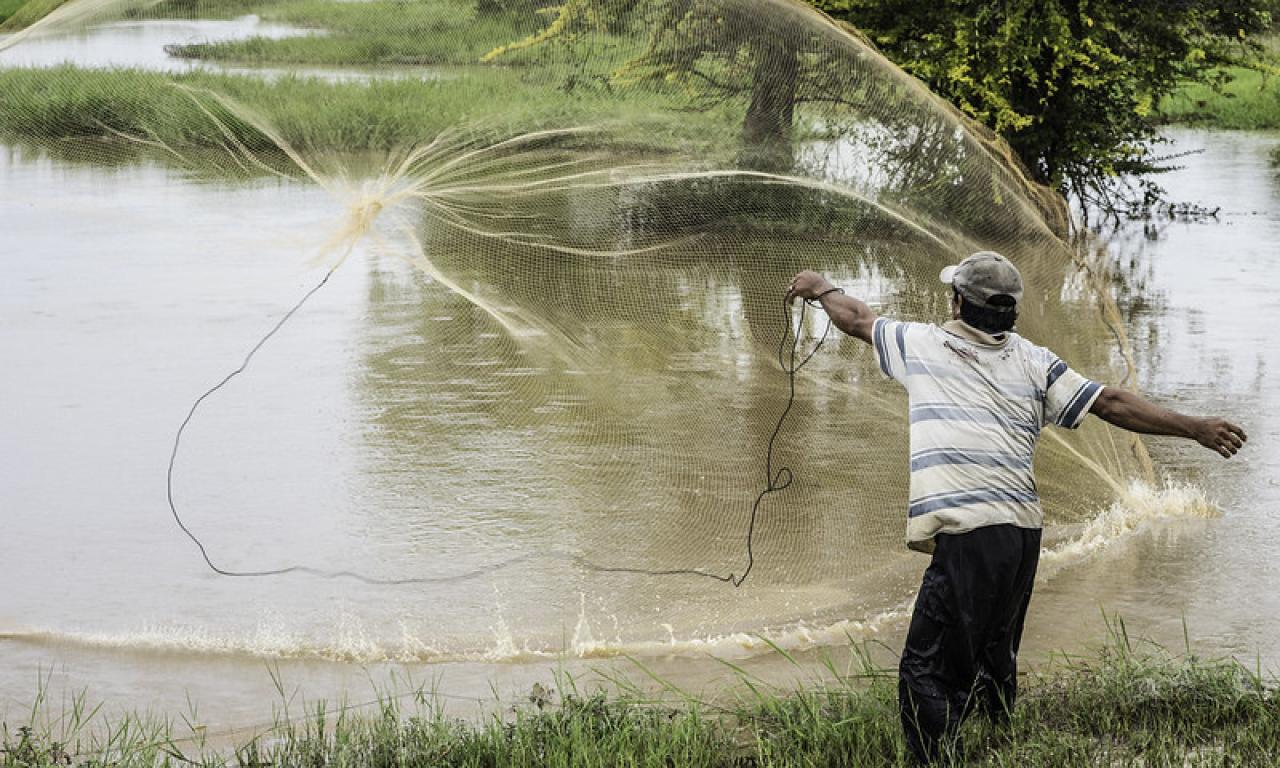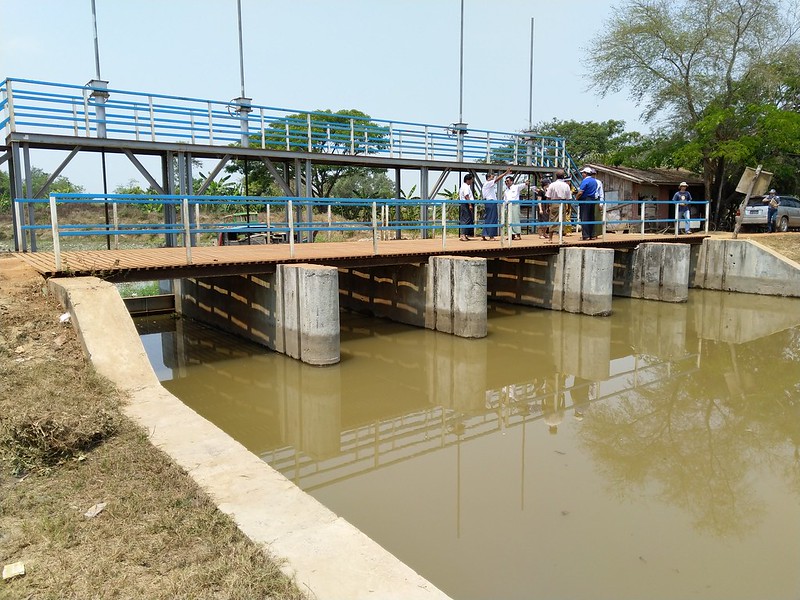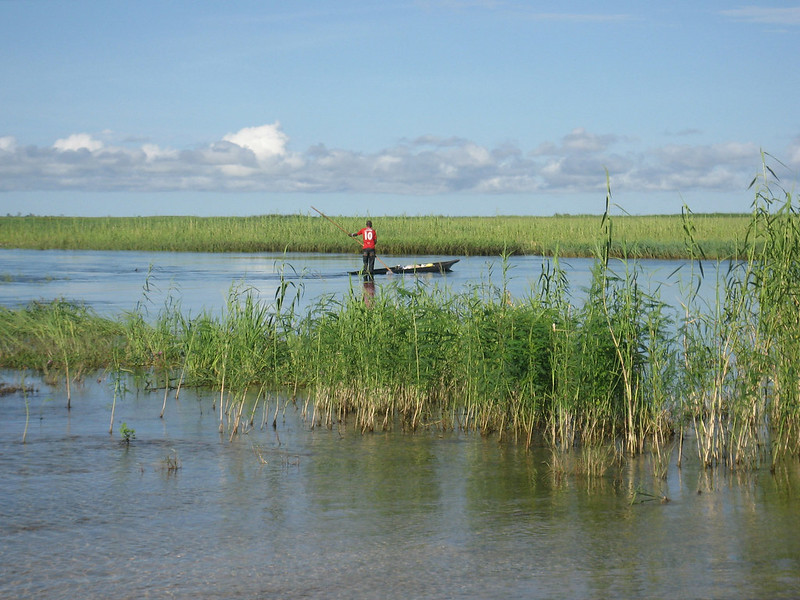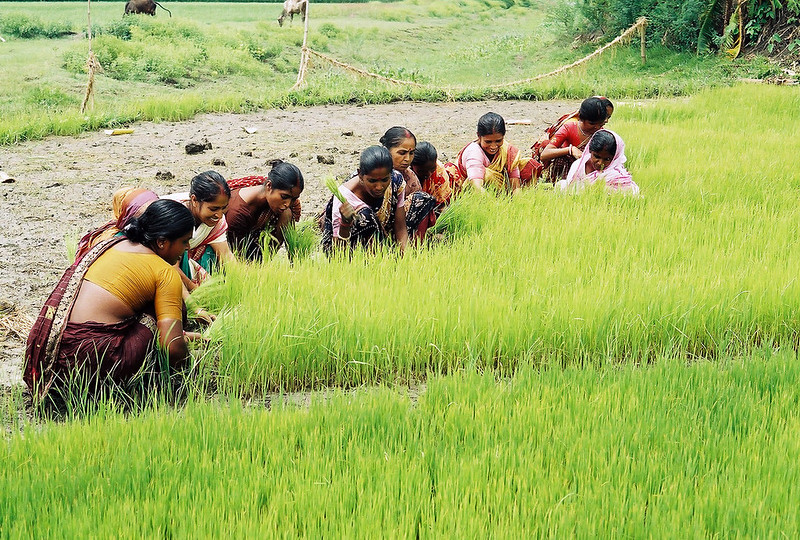
- WorldFish and partners joined the 2021 World Water Week to discuss the critical importance of integrating agriculture, fisheries and water management to build faster resilience in global food systems.
- Together, they shared holistic approaches to fish-friendly irrigation and integrated rice-fish systems and their advantages to food production, nutrition, health and livelihoods and climate resilience.
Agriculture, fisheries and water management should be integrated to realize greater synergistic benefits and foster a sustainable, nutritious and resilient food system, said panelists during two virtual conference sessions co-convened by WorldFish at World Water Week 2021.
Organized by Stockholm International Water Institute, World Water Week focused on the global transformations needed to realize the Sustainable Development Goals, in which water is a catalyst for change.
The sessions consisted of presentations by a panel of experts assembled by WorldFish, the International Water Management Institute (IWMI), the International Rice Research Institute (IRRI), the CGIAR Research Program for Fish Agri-Food Systems and other partners. The presentations were followed by breakout room discussions with participants.
The panel discussed the benefits of fish-friendly irrigation to production, livelihoods and health as well as the advantages of integrating rice-fish systems to increase climate resilience and nutrition.
Integrating fisheries, irrigation and water systems as win-win solutions

Irrigation is increasingly expected to deliver multiple benefits towards food and nutrition security, social inclusion, rural livelihoods and environmental preservation. However, if the focus is only on crop production, irrigation systems and reservoirs can disrupt fish migration and degrade fish habitats. Integration of fisheries in irrigation systems is a nature-based solution that increases the mutual benefits of both sectors.
“With the right measures, not only can this harmful scenario be avoided but fish production can be increased, benefiting nearby communities,” said Simon Funge-Smith, a senior fishery officer from the United Nation’s Food and Agriculture Organization (FAO).
He suggested developing nature-positive solutions to ‘green’ grey infrastructure, or ways of managing water resources via human-engineered structures like dams and seawalls, to sustainably enhance fish production, water management and human nutrition.
Funge-Smith also recommended a proactive policy to integrate fisheries with irrigation. The potential of fish-friendly irrigation to enhance aquatic biodiversity and livelihoods, particularly nutrition, should be highlighted, he explained.
“Building technical capacity to support integration of fisheries into irrigation improvement and incorporating fisheries integration in irrigation financing should be explored,” said Funge-Smith.
Alvin Lopez, the senior natural resources and agriculture specialist at Asian Development Bank (ADB), further noted that fish are usually not captured in cost-benefit analyses of irrigation. He said ADB acknowledges that integrating fisheries in irrigation investments can strengthen the resilience of aquatic life to the impacts of climate change by maintaining their natural habitat.
Scaling up holistic food systems approaches for improved outcomes

A form of polyculture, rice-fish systems integrate rice crops with aquaculture, leading to a diversity of food products and a more resilient source of income. Fish and other aquatic foods can be grown concurrently or alternately with rice, depending on the area and circumstances. Rice-fish systems make efficient use of scarce resources and ultimately reduce the need for chemicals in rice production—the fish both fertilize the rice and help control pests.
Despite rice-fish systems being a traditional practice in China, India and South East Asia as far back at 1,500 years ago, adoption in the present day is limited and faced with challenges. A holistic food systems approach is urgently required in developing solutions and action plans for the integration of rice and aquatic food systems, the speakers said.
“With less than nine harvest seasons before we reach 2030, we need to reset our perspectives on traditional rice-fish systems and create necessary solutions that bridge the system with modern innovations and technology toward realizing the system's potential for addressing food and nutrition security,” said Shakuntala Thilsted, WorldFish’s global lead for nutrition and public health and the 2021 World Food Prize Laureate
The International Commission on Irrigation and Drainage (ICID) honorary Vice President Chaiwat Prechawit provided an example of a successful pilot project of integrating agriculture, fisheries and water management at Bang Rakam, Thailand. Shifting the start of rice farming by a month enabled the lowland area to be converted into a rainwater reservoir during the monsoon season. This not only alleviated the flooding in the area but also increased the livelihoods of the locals through introduction of aquaculture activities.
Bethany Smith, a geospatial research consultant with WorldFish, played a video providing insight into WorldFish’s work on rice-fish systems at the Ayeyarwady Delta in Myanmar, demonstrating a decision support tool currently in production that helps target priority areas for investment in food system transformations.
Cross-sectoral collaboration key to achieve sustainable development goals

Panelists acknowledged that collaboration between the two very distinct sectors may be difficult due to a diversity of stakeholders and experts with diverse knowledge. As such, there is a need for ecosystem thinking to foster greater capacity and cross-sectoral relationships that encourage fish-friendly irrigation and integrated agriculture-aquaculture systems. The involvement of multiple government ministries and the development of multidisciplinary teams were among recommendations from the breakout sessions.
To better understand the intersections between water resource governance, sustainability and food security, watch the event recordings:
